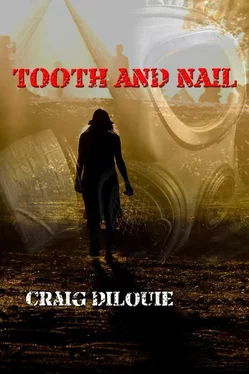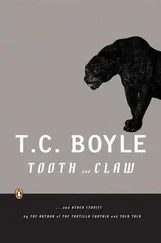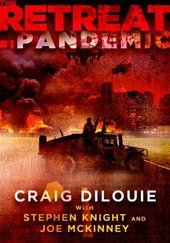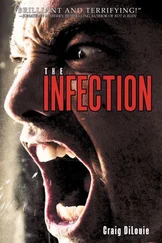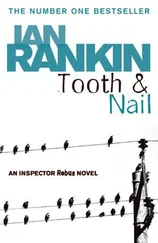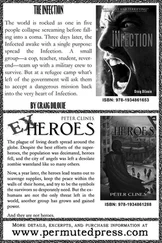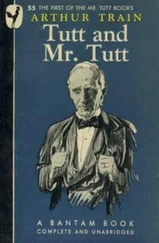McGraw raises his arm and does a single backstroke, telling First Squad to line up behind him in column file formation with the SAW gunners in the middle. He raises both arms and pushes his flattened palms toward each other until the boys tighten up their intervals to his satisfaction. The length of the column is now about the width of the hallway. Pumping his fist up and down, he tells them they will move at a slow run.
Finally, he does a wide forward “follow me” wave, telling them to move out.
His shooters jog into the open across the hallway, attracting the attention of the Mad Dogs, who snarl at them. A dozen immediately run towards the soldiers.
“Let ’em have it!” McGraw roars, unloading his shotgun at the closest infected and knocking them down with a single blast spraying more than twenty-five pellets of high-velocity buckshot. On his left, the boys hit the ground as Eckhardt and Rollins open up with their M203s, firing high-explosive forty-millimeter grenades over the heads of the Mad Dogs, tearing apart the infected crowded together about halfway down the hall.
Then the SAWs open up, tracers flying in blurred red sparks, knocking over Mad Dogs like bowling pins. They are far enough from the Mad Dogs that the weapons’ beaten zones—the area of ground on which the cone of fire falls—covers the width of the hallway almost perfectly with minimal shifting fire. In other words, a turkey shoot. The guns spit out hundreds of empty shell casings, which ring against the floor and roll away. The devastation is so horrible, so complete and so disorienting that many of the Mad Dogs run straight into each other and into walls. But they do not stop. They do not appear to know fear, only an endless murderous rage that is now directed at First Squad’s eight soldiers.
McGraw crouches behind one of the SAW gunners.
“You’re aiming too high, ” he says, watching the tracers. “Give them grazing fire, Ratliff.”
More come spilling out of a side hallway. McGraw realizes he was wrong. There aren’t two hundred Mad Dogs.
There are at least twice that.
A grenade becomes armed several moments early and explodes near the ceiling, bringing acoustic tile, fluorescent light fixtures, twisted metal tubing and water falling onto the heads of the onrushing horde. A severed arm flies spinning down the hallway and sails over Mooney’s head, making him flinch.
“Did you see that?” Wyatt says.
“Out of HE, switching to buckshot!” Rollins calls out, coughing on dust and smoke.
“All right, Mooney, Wyatt, Finnegan, Chen, it’s time to get in the game,” McGraw says.
“About time,” Wyatt yelps, and begins shooting with his carbine, a sustained series of metallic bangs. “Get some!”
“Rollins, you got any WP grenades?”
“I got three, Sergeant.”
“Keep them handy in case we need to get out of here in a hurry and lay down some smoke to disorient the enemy.”
“Not a problem, Sergeant.”
“Take your time,” McGraw tells his riflemen. “Choose your targets. Conserve your ammo. Make your shots count.”
Mooney lines up his carbine’s barrel using its iron sights, takes aim at the center of a woman’s torso, and fires a short metallic burst on semi-auto, pop pop .
The carbine recoil hums against his shoulder, the spent shell casings fly into the air from its eject port, and then she is down. In close quarters marksmanship training, the Army taught him to fire two to the chest and one to the head to decisively neutralize an enemy. Here, however, he does not have to stop the enemy from shooting back, only stop them from advancing. No fancy shooting is needed; he only has to throw enough lead at each target to put them on the floor with the least amount of physical energy.
In fact, it is horribly easy for the squad to massacre all of these people. They are just flesh and bone.
“Reloading!” Eckhardt cries.
Mooney aims and fires again, and a man in BDUs just like his own drops onto the growing mound of corpses and body parts.
And again. And again.
The 5.56-mm rounds are high-velocity bullets that often plow straight through the body, tumbling in their trajectory and shredding organs and tissue as they pass through.
“Reloading!”
After a while, Mooney lets the training take over his body, giving his numb brain a rest and a chance to detach from the horror.
“How do you like me now?” Wyatt yells.
A pack of children dash towards the soldiers, snarling, hands reaching.
“Oh, Lord,” Carrillo says, nearly blind with tears, and cuts them down with several bursts of his SAW.
“Reloading!” Mooney calls out.
The Mad Dogs never even get close.
Sergeant McGraw waves his hand in front of his face and yells, “Cease fire, cease fire!”
Mooney slumps against the row of metal lockers behind him and gulps air in quick gasps. The air is thick with cordite and an odor combining the rotten sour-milk stink of the infected with the sickly metallic smell of fresh blood.
The smoke hangs in the air like a shroud.
“That was starting to look a little dicey,” says Ratliff, checking his SAW’s ammo box. “I only got about ten rounds left on the belt.”
Carrillo stares at the carnage while smoke rises up from his SAW, which started to overheat at the end.
“One of those kids looked just like my sister Jenny’s boy,” he rasps quietly, as if he is losing his voice. “But they’re supposed to be in Florida. You don’t think?”
“Naw,” Ratliff says. He looks around for the Sergeant, sees that the man’s back is turned, and pulls down his mask to light a cigarette. “Couldn’t be.”
“But it looked just like him,” Carrillo says. “His name’s Robbie.”
“I can’t believe this freaking carnage,” Wyatt says. “It’s ten times bigger than the hospital. It’s mad sick, like a video game, yo.”
Nearby, Chen quietly retches against the wall, moaning and mumbling to himself.
“It’s not a game, you goddamn psycho,” Eckhardt says, his face burning with shame. “You’re not supposed to like it.”
“We paid them back for what they did, that’s all,” Finnegan says grimly, kicking at the carpet of empty shell casings on the floor. “God knows the difference between a just kill and the kind you go to Hell for.”
In Iraq, they had shot up cars, some filled with families, that disobeyed their orders to halt at a checkpoint. Men, women, children. An inevitable accident of war that filled many of the boys with regret and would stay with them for the rest of their lives. But this was intentional, against Americans, and on a colossal scale they never imagined possible.
And here was the Sergeant telling them they did a good job. That they secured the area and could rest soon. It’s like getting a medal for My Lai. This is payback, and it tastes like ashes. They wanted this, they were hot to kill a million of those things after what they saw what happened to some of the boys of First Platoon, and now they are ashamed.
“They just kept coming,” Ratliff says, shaking his head with something like admiration. “They wouldn’t stop.”
“They’re not human anymore,” Mooney says, his ears ringing and his headache returning with a vengeance.
“I’m starting to agree with you on that,” says Eckhardt. “The way they looked at us. The way they moved. Definitely not human.” He shivers. “It’s like they were possessed by demons.”
“Actually, they were possessed by a virus,” Mooney tells him. “But you’re not far off, Corporal.”
“Did you see the ones wearing BDUs?” Ratliff says. “They were Army. Are we going to catch the bug and end up like that, too?”
McGraw is surveying the wreckage, stepping carefully among the mangled carpet of flesh, blood and human waste. An old woman, bleeding from a dozen wounds, crawls towards him on her hands and knees, hissing.
Читать дальше
